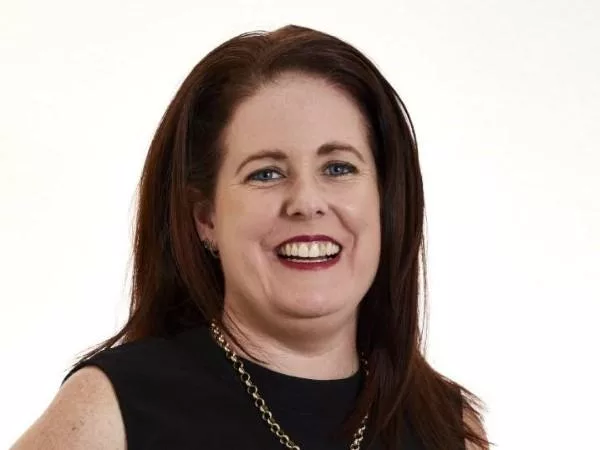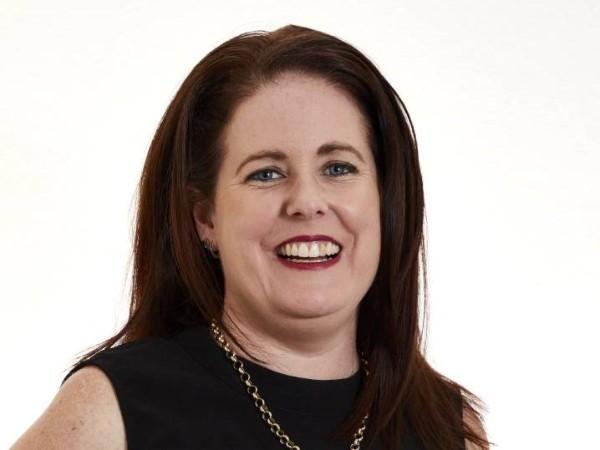
Josh: G’day everyone out there in podcast land. We’ve got Blair here from Enrich Bookkeeping Solutions and she’s going to be talking today about change, planning for growth and how to become a business warrior. So Blair, tell me what is the first step that people need to be doing when it comes to planning for growth?
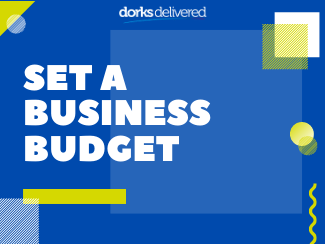
Josh: Okay. So would that be said, for instance, hypothetically if I’m running an IT company, instead of having supplies that we’re working on a cash basis, we move to an account basis, we could then times the bills so that we’re not always I guess in arrears, so to speak with buying a product that comes out of our account that then gets shipped off to the client. And there might be like a net 30 terms or something like that with the client that then waits 30 days to pay, and then we’re sort of sitting without that money. Is that kind of to sort of help out with those sort of situations?
Blair: Yeah. So the sooner you can collect money from your clients, and the longer you can pay your suppliers, it’s going to help the cash flow of your business.
Josh: When is the right time to do that? Like, I know that when you first start out in business, you don’t necessarily have any proof of dealing with businesses. And when you have different suppliers and things like that, they might say, give me some trade references, for instance, how do you sort of jump in there? What’s the step? Are you just having a cash account and then showing them that you do have some throughput before moving across? So how do you manage that?
Blair: Yeah, look, the earlier you can implement that in your business the better your cash flow is going to be earlier. Some businesses will offer accounts straight up. But it may be for a smaller amount than you need in your business. So, you know, you may have part of it cash part of it on credit until you’ve gained that credibility and trust with that supplier. And if you’ve got suppliers that maybe won’t do it, shop around and see who will, and have the conversation with the supplier about, you know, how long will it be until we can look at a trade account? So is it three months, six months, 12 months? What, you know, is their general rule in their business that they’re looking for? That way you know you’re working towards.
Josh: And that’s always just as simple once you know that just chucking me a calendar and having another review in three or six months, whatever they say, I guess.
Blair: Yeah, yeah.
IT doesn’t have to be expensive. If you’re starting a business and need reliable IT support and services, fill out the form to learn more about $1 IT services.
Josh: One of the things we noticed when we put in accounts, I was in my teenage years and I didn’t have a credit card or any sort of cash reference. And I guess to them they would have been red flags. So it was difficult to get the first account for me. But what I did find out in shopping around exactly as you said, I found one supplier that was happy to have a cash account. And they also had very, very good 
The moment we got the account in place. We noticed that if we place the order at eight o’clock, it was at the clients at 11 o’clock. So it improves customer satisfaction. This supplier, in particular, wasn’t the cheapest supplier around. But the ability to get the products out quicker was more important to us than saving $5 or $10, here and there. So we found that having that relationship and having the account was great just to increase customer satisfaction, even if it means you’re spending more. Is there any other ways that you would look to I guess, when planning for growth, you said cash flow is very important. Are there any other things that you think would be those Cornerstone, milestone type items that people should definitely be having on their to-do list to look at?
Blair: The budget is important because the budget, I guess sets the path for where you want to go. So you’re going to plan in your budget for that growth. So then it’s going to show you when do I need to start looking at hiring new employees or do I need office space or bigger office space. So you’re going to see that you know, your budgeting, you can budget you know, up to five years in advance. So if you’re doing that you’re going to see in advance what you need to do in your business. And you can plan for that prior to then all of a sudden, oh, I need two new employees yesterday.
If you need assistance with your automation, talk to a dork. Fill out the form below to book a free one-hour consultation.
Josh: On the employees, that’s something that I’ve learned the hard way. And I think a lot of people out there, a lot of business owners, for lack of a better term, start as cowboys, cowgirls and try to work out what am I doing? How am I doing this? How do I step in that direction? And before the episode started, actually, we’re talking a little bit about people that kind of thing they know it old but have a lot of advice to give but no experience of where that came from. When looking at these I guess different monster moments looking back retrospectively, which is great. I have a look, and I go okay before I got employees on I should have been planning for documentation and planning for our systems and infrastructure to make sure that the IT support that we’ll be able to supply to our customers was top-notch before already working at 120% capacity and then bringing on some of that, take that 20% while still having to then train them up, which was very stressful. Definitely put some pressure on the family.
Blair: Yeah, that’s right. And even, you know, when you are just that sole operator, getting the time to do that stuff as well as you get so bogged down in working in the business, that often working on the business gets forgotten about. But I think, you know, if you are planning to grow your business, you need to allocate time each week to be working on the business.
Josh: I completely agree. We get stuck in the trenches. And it’s just what happens. Again, like as I said, most business owners, they start off as cowboys and cowgirls and it just comes through. A lot of people just have this brain fart and go, I’m going to be a business owner because I can do this better than where I’m at. Or I want to have more flexibility. Or whatever the case is, and very rarely do they think that they’re going to be working more than they’re working. Secret. Everyone works more than 40 hours a week if you’re a business owner. But it’s something you enjoy doing, which is good. Unless you’ve stopped enjoying doing it, then stop doing what you’re doing.
But the big difference I think between learning to work on the business to grow your business and working in the business is the differentiator between the business owners that own a job, and the people that own an investment. I’m definitely not slacking on Avon and some of the other bits and pieces out there when people say I own my own business. I sell Avon or Tupperware and things like that. That’s fine. I wouldn’t really say that that’s it’s earning a job more in my eyes and I think you’re going to be retiring and selling off your share of your ownership of Tupperware or Isagenix or whatnot, and that’s where working on the business is growing your business. That’s where the investment is. It’s money now versus money later.
IT doesn’t have to be expensive. If you’re starting a business and need reliable IT support and services, fill out the form to learn more about $1 IT services.
Blair: Yeah. It’s about also like don’t feel guilty about spending that time on the business when you know, you’re not working on clients or income-producing for right now, because the time you spend on the business now, as you said, produces income in the future.
Josh: Yeah. And I think one of the other big things that I found when we were in our growth stage, I don’t think we ever really get out of that. So it’s just a cycle. And a mindset change is the mindset and the people aspects of that. So we had the first contractor, and I thought that he’s great, he’s fantastic. And then he started getting rather sick and had a lot of health problems. I thought, oh no, what I’m 
You need to make sure that they are working and doing the best things for the business and you are pulling everything in the right direction. You want to have reliance safe, but you don’t want to have them have the knowledge that you are completely reliant on them because then they’ve got more cards than you have. And then you kind of stuff, you sort of push yourself into a corner. What’s been your experience with businesses that you’ve worked with when it comes to sole operators when they go from being a solo operator to the first full-time employee, it pretty much doubles their workforce. It’s pretty significant as opposed to someone who has 100 employees that gets another 10 employees, it’s only 10% more workforce. It’s not anywhere near as drastic. Have you found people manage that sort of growth and having to have those management aspects of their business?
Blair: Yeah, I think a lot of business owners aren’t prepared for that first employee. I think sometimes it happens quicker than they expect it to happen. Like their business may experience growth quicker or all of a sudden, they just wake up and they go, you know, I can’t work keep working 80 hours a week and not having a day off. And so they look at hiring and that you know, they’re just talking out off on sea. And then they’re bogged down with hundreds of resumes and trying to decipher through who is the best fit for their business and they don’t really have a good HR or hiring plan, you know, and I think sometimes without that plan, and if they do get a good employee, they just get lucky, probably more often than not, they, you know, get someone who’s not necessarily the right fit and they’re starting again, or that person like you’ve experienced and then, you know, again, you’re starting again looking for someone else.
Josh: I don’t think it’s any secret for anyone listening to the podcast for a while that I love automation, I hate repetition. And the thought of hiring someone, and although I sound extroverts is a learned skill. Anyone can learn to do this. I definitely love my alone time. But the thought of hiring someone scared the hell out of me. I’m sort of putting food on their table and their family’s table and it becomes too much thinking about it alone. Oh, this is scary.
Do you need help with backup and recovery? Fill out the form to get in touch with a Dork.
So the first full-time employee I had the HR guy come in and go through. And as I was asking the questions he was looking at them, I guess, the psychological responses and body language that the person was showing when these questions were being answered. And that’s something that I went who, at that stage, I hadn’t even really thought too much about having to look at someone listen to their answers. Look at their body responses. Did they look away? Did they look to the right or do they look to the left? Did they close their hands or did they open their hands if you reword the question three different ways was it answered three different ways or the same way? And so I was thinking far out man, there is a science behind this. And I was so happy that I did, because the person I bought on, Alex was great as the first full-time employee, as I said just family stuff and he had to move down to Coffs Harbour, but it was something that I was so happy I did that. That was a stress that was removed. That comes down to I guess what we touched on a little bit earlier about cowboys and people giving advice when it’s not warranted advice. You’re talking a bit about a bit earlier about GST and the right time to sign up for GST. Do you want to let our audience here a bit about that?
Blair: Yes, as I mentioned earlier, I saw on Facebook on one of the business pages, I’m a member of. Someone who had asked about when is the right time to register for GST? They’re in business. They’re have not met the threshold requirements yet, but wanted to know should they register anyway. There was a lot of people commenting, you know, giving their unqualified advice, and one person commented and that they had registered prior to needing to. And if you use an online bookkeeper such as QuickBooks, it’s really easy, which I found was quite an interesting comment to make. Because QuickBooks is not a bookkeeper, it’s software.
Josh: It’s like comparing a screwdriver to a builder. You don’t need a builder to build your house, go and buy a screwdriver. It’ll work. It’s the same thing. They’re just going to use a screwdriver anyway. The fact that you bought a screwdriver and a hammer and you think you’re going do something with that when you didn’t buy nails or screws. It’s kind of just like, what are you doing? It’s, I thought, yeah, we see some of these situations and it just blows my mind. Have you heard of the Dunning Kruger effect?
Blair: No.
Josh: So the Dunning Kruger effect. And this is a big, big problem on the internet, it’s a cognitive bias, where people think that they are smarter, more capable than they really are. So it pretty much means that people with a lower ability, don’t have the skills needed to recognise that they’re incompetent. And so they think they know everything, and they’ll go and express that to everyone but the more they learn on the topic, the deeper they find the topic is, the less confidence they have, even though they’re now more experienced. Does that make sense? The smarter you are at a certain topic, the less confident you are until you’ve been doing this for years and years and years. And I think that the biggest problem I have on these like Facebook groups and LinkedIn groups and other online forums is people give this advice and they go I’ve been a business owner for six months. Use Zero, use MYOB, it’s easy. You don’t need a bookkeeper. Just don’t worry about it. Don’t worry about depreciation schedules or anything else or how that even works. It’s not even something in it. Just make sure the lines line up. The chart for accountants, not something important to you at the moment. It’s just gone and buy the screwdriver and build the house.
IT doesn’t have to be expensive. If you’re starting a business and need reliable IT support and services, fill out the form to learn more about $1 IT services.
Blair: Yeah, yeah, I did find it to be an interesting comment and show that obviously a lot of people don’t really understand the value of a bookkeeper and the value to their business. Because it’s not just about inputting information into accounting software.
Josh: No, the first person that I had that came into my business after myself. So in 2007, before I started the business, I got all of the different books that I could get from the government on GST and tax and everything that I could possibly learn about how things would work. The Queensland Government, well, just generally, the Australian Government has a lot of resources available. Now, it’s probably all 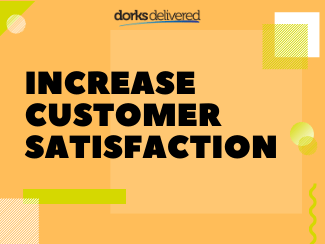
But the end position was I knew more about it, which is good for business owners to know about it. But it still scared the hell out of me. And so the first person I bought in was a bookkeeper to help me out and that was in 2011, I think, 2010, and two years after I set up the trust, and I hadn’t done any returns. I was freaking out, I’m like, they’re going to send the police here, I’m stuffed. I don’t know if I’ve been doing anything right or wrong, or backwards or upside down, and I thought I’m just going to be completely stuffed and I was freaking out. Anyway, I got the bookkeeper, and she’s like, no, it’s so good. We’ll get through it. And it was like to fix up the previous two years maybe wasn’t much, like $1,000 maybe 1500 dollars. And this is again, rewinding around a decade so adjust for inflation, but oh my goodness, I could sleep better at night. Now, I could have sat there reconciling lines, but it wouldn’t have helped me out in the situation that I was in.
And the second blunder that I’ve had is knowing that your bookkeepers doing what they’re meant to be doing. And they have the qualifications and they’re associated with the appropriate governing body. So say you’re Zero certified and you’re CPA in bits and pieces, because the bookkeeper that I had after the first bookkeeper, the second bookkeeper wasn’t looking at the invoices. One of the main suppliers that we had moved over to And we’ll then claiming GST on something that we weren’t meant to be for a number of years, racked up like a $30,000 GST debt that we weren’t anticipating on. Yeah, so definitely don’t go do it yourself far out.
Blair: Yeah, I know. Like I’ve got clients who do sort of the bookkeeping side of it themselves. And then every quarter, I check their accounts and lodge their BAS. And I don’t believe there is one of those clients, that’s when I do the checks. I don’t have to fix something that’s wrong. Mostly incorrectly classified GST. So you know, claiming GST on things they shouldn’t be or vice versa. One of the biggest ones that affect most people is Telstra. So, Telstra does not charge 100% GST on their invoices. I haven’t been able to work that out yet. But they don’t show that.
IT is indispensable but it shouldn’t cost hundreds of dollars. Fill out the form to learn more about our budget-friendly on-demand IT solutions.
Josh: Interesting. Wait, what parts are they not charging GST on?
Blair: So if you have a look at your Telstra bill, your GST will not be 10% of the total or one-eleven. Yeah, it’s usually a little bit less and most business owners just claim, put it in, you know, 500 bucks to my Telstra bill this month, find the GST, $45, and it’s not. It might be $30 that they should have claimed.
Josh: Far out. That’s a big one because that’s like, not a small company. People know of it.
Blair: Yeah, so that’s probably the most common one. The other ones would be insurance. People not claiming the right amount on insurance because obviously there’s a stamp duty component to insurance that there’s no GST on. And yeah, people don’t realise that. So Yeah, it’s not just about putting the information into the system, it’s about ensuring that it’s correct, but also making sure that it’s been allocated to the right part of the chart of accounts. And that all your accounts actually reconcile, that’s going to make your tax accountants job a lot easier at the end of the financial year, is if everything’s in the right place and reconciling.
And like you said, making sure your bookkeeper’s qualified. Like, as a minimum, you want your bookkeeper to be a registered BAS agent? Anyone who’s not a registered BAS agent, legally, cannot do anything to do with GST, FBT or single touch payroll. Alright, so chances are they will ask you for your paper BAS form that you’ve received from ATO so they can fill that out for you. That’s a huge red flag. They lodging STP under your company’s name rather than under an agent’s registration. A lot of things business owners wouldn’t realise. And it’s something that I tell people a lot is anyone can wake up tomorrow and decide to be a bookkeeper. There is nothing governing them from not doing that.
So Mrs Jones, who’s done the books of her husband’s building business for the last 40 years. And now all the kids have left home and she’s a little bit bored, can wake up and start advertising bookkeeping services. And business owners don’t realise how easy it is for someone to do that.
Josh: That’s terrible. Well, it’s great for Mrs Jones but it’s terrible for every other business that she’s working with.
Blair: That’s right. And often, you know, like, I hear people say, oh, but I can get someone to do it for $10 or $20 less than you down the road. And I’m like, okay, see you in 12 months, when they’ve messed it up and it’s not right.
Josh: Yep. money spent on the right thing saves a lot of money in the future, being cheap is very expensive.
Blair: Yeah, and a good bookkeeper will save you money at the end of the year with your tax accountant. Like people think they’re saving money by not using a bookkeeper. But then it gets to their tax accountant at the end of the year and it’s wrong. And the accountant needs to fix it. Most tax accountants are charging anywhere from $150 an hour up. Whereas you’re paying a bookkeeper half that.
IT doesn’t have to be expensive. If you’re starting a business and need reliable IT support and services, fill out the form to learn more about $1 IT services.
Josh: Circling back to what we’re talking about planning for growth, you can’t plan for growth if you’re doing your own books. It’s a task that you’re able to outsource to a professional that can hold that screwdriver and build that house for you, build the infrastructure out and make sure it’s working. And as you said, if they’re checking on the pulse and doing some reconciliation, that’s fine, but it doesn’t make them a doctor. They’re not going to hear a flutter in your heart that you guys will pick up on. So I think anyone’s foolish for not engaging in the services of qualified people to look after the items of their business that they’re not qualified to be doing it. Tell me a bit about your book. You’ve got a book called Business Warriors?
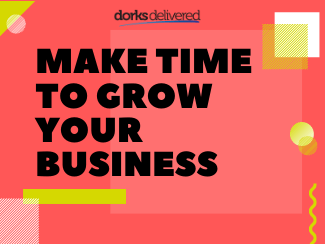
Josh: I could see that. Yeah, definitely.
Blair: Yeah. And it wasn’t until the wars came and they needed to send them into war. They were like, well, what are we going to do? We’ve got no men to do the work. So they then started letting women do the work. But they weren’t allowed to call themselves accountants, even though they were doing the same work that men were doing.
Josh: Really? What were they called?
Blair: I think, like, just clerks. Like, yes, something along those lines. I kind of feel that’s where that men’s club started. And the culture of that just sort of continued. Probably, obviously, nowhere near as bad because we now let women work as accountants and 49% of the CPA membership are women. So there are a lot of female accountants in the industry now. And we’re allowed to call ourselves accountants or we’re allowed to be CPAs and CAs, and, you know, part of these governing bodies that originally we were never allowed to be a part of. We were not recognised in the industry.
Josh: The IT industry, similar, very, very male-dominated. Now, the majority of the managing positions in IT, 55% of women, so it’s really good. It’s good to see sort of this change. My sister is an engineer. And when she was working for different businesses, she was the female engineer of a team of 100 engineers and things like that. It was good as she saw new blood coming in and empowering that there is sort of a bit of a change here. I still can’t believe like some of the shady paths that we’ve come from.
But if anyone out there is looking to have a fantastic bookkeeper, definitely jump across to Enrich Bookkeeping Solutions and give Blair a holler. And I’m sure she’ll get to talk to you about all sorts of things from how to grow your business and better your business with your numbers and make sure that if you bought into some advice that you’ve seen on Facebook, you can do your numbers yourself, it’d be probably a good idea for her to at least give you an audit and then see where you’re at.
So, if anyone out there does have any advice or would like to leave a review, jump across to iTunes, give us some love and stay healthy and stay good out there in these interesting times.
[module-379]


